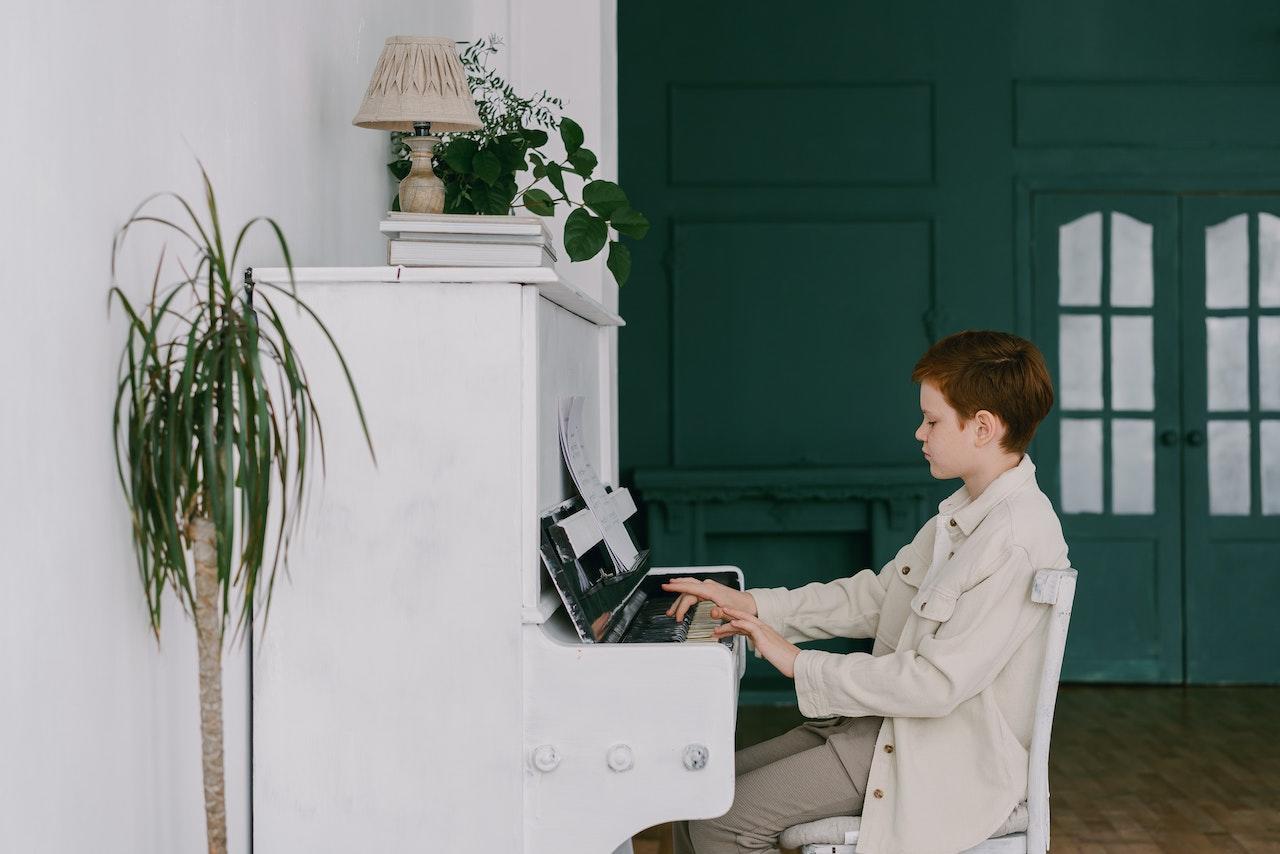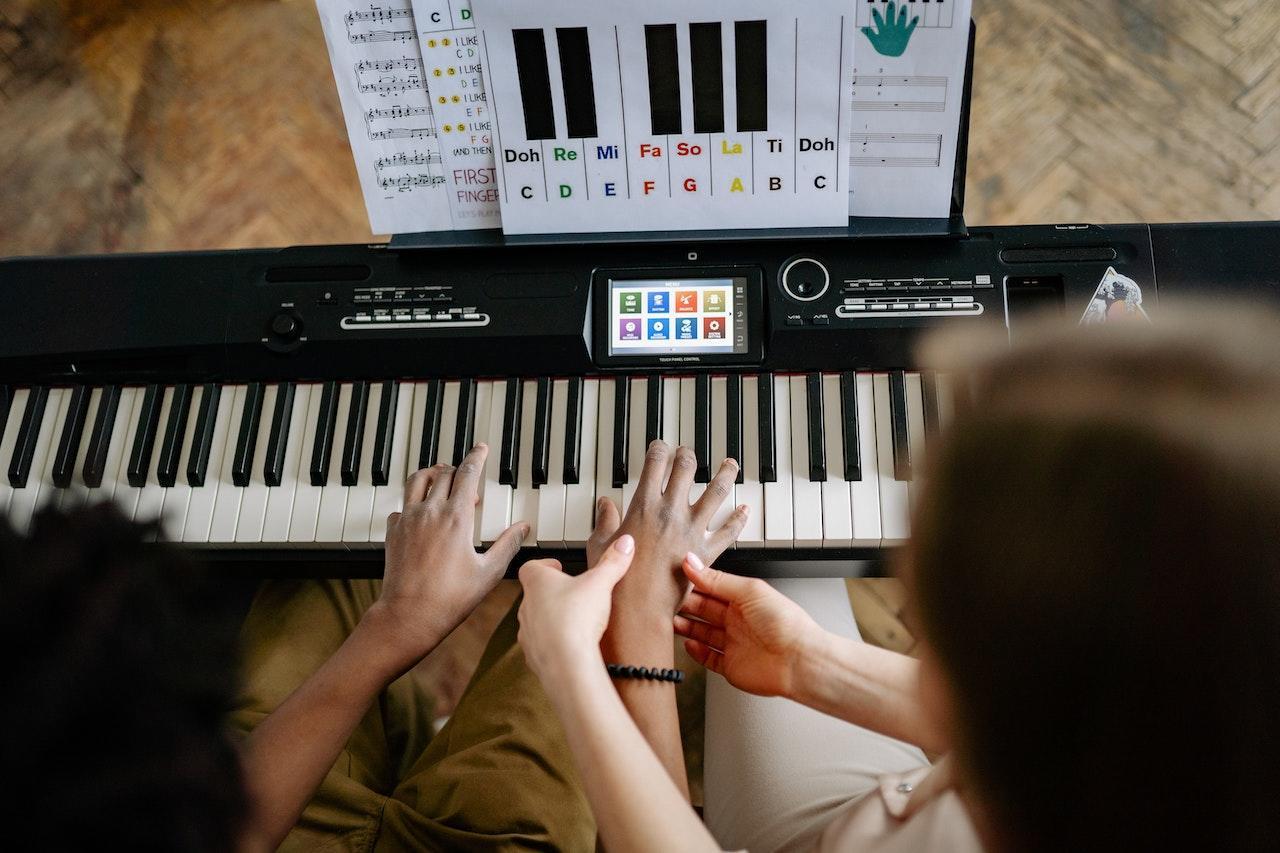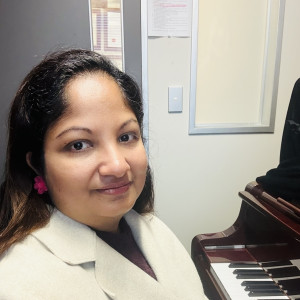Are you tired of always singing the blues and feeling like a flat note in life? Learning to play the piano can add some major harmony to your days! But with so many options out there, finding the right key to unlock your potential can be a bit tricky.
That's why we're here to help you strike the right chord with private piano lessons. Let's tune in to the benefits of one-on-one tutoring and how it can help you reach a crescendo of piano-playing success with your beginner piano lessons!

Why Take Private Piano Lessons?
What are the advantages of private lessons versus being part of a group?
When you’re talking about instruments, there are some that are better suited for groups or ensembles, and some that are better solo. The piano is one of those instruments that plays better on its own.
If there are too many people playing at once, it can easily because too loud and cacophonous for you or the teacher to make any meaningful progress. And if you play one at a time, that means a large part of the class is spent listening and watching other students learn.
So, this is why private instruction is better when you’re learning the piano.
Optimised Lessons
Your teacher will know your starting point, what your goals are, how you learn best as an individual, and how you are progressing. All of this individual attention guarantees that you will be getting a more meaningful education than if you had a tutor with attention split among other students.
These optimised lessons all but guarantee that you will progress faster than if you were amongst a group of other students.
Flexible Classes
You might begin a lesson with a certain lesson flow in mind, but once you begin, you find a different concept that grabs your attention. It’s best to run with these inclinations as much as possible because you’re more likely to learn something you’re actively engaged with at the moment!
When you’re the only student in class, your tutor can pivot and teach you this lesson on a whim rather than be forced to remain true to the set plan.
Scheduling
When you have your own piano teacher, you will be able to have more flexibility in scheduling your lessons. A class might only run once or twice per week at one specific time, but a teacher who offers private lessons will usually have a broader span of time available throughout the day.
Whether it’s morning or evening, a private tutor is more likely to be able to meet your needs.
Access to Equipment
If you don’t already have a piano or keyboard for practice, you are better off finding a tutor who has one that you can use, at least to start with. If they come to your home, they may be able to bring a portable keyboard. If you travel to their studio space or home, they may have a keyboard or piano you could use there.
This way, you can be sure that you enjoy playing before you invest in purchasing any equipment. And, you can ask your teacher for recommendations if you do intend to buy your own.

Who Are Private Piano Lessons For?
Whether you’ve never been in the same room as a piano before or you’ve been playing for years, piano lessons are for you!
Even the most experienced piano players might seek out a tutor from time to time to help them maintain their hard-earned skills.
As a beginner, you might feel a little intimidated to begin taking lessons, but you don’t need to! Your instructor is a professional who has studied music and may also have a music teaching accreditation to show their expertise. They will be able to help you learn what you need to know to be an adept player.
Types of Piano Players
There are many different reasons people choose to pursue becoming a pianist, and all of them are valid and can be assisted with private lessons!
Some people want to play purely for fun and don’t really care if they ever become an “expert.” Others are interested in learning complex compositions and want to perform on stage. And others perhaps want to learn a thing or two and have some basic skills, just to have some more knowledge.
No matter why you choose piano, your teacher can help you reach your goals.
Meeting a Specific Goal
Maybe you want to surprise everyone at an upcoming event by playing a song on the piano, so you have a specific goal of learning that one song. Your tutor can help you nail it so you play like a natural! And, if you want to continue lessons afterwards, that can be an option.
Perhaps you’d like to be able to play background music for your own purposes, like an animated video or a skit. Or accompany yourself as you sing songs you wrote.
The only limit to the use of piano skills is your imagination!
Different Genres
Classical, jazz, theatre, freestyle or improvisational, honky-tonk, theatrical… no matter what kind of piano you want to learn, there is a tutor who can make it happen.

What Can I Expect in a Private Piano Lesson?
There are a few things you ought to know about being a piano student to ensure you get the most out of your lessons. The first thing is: It’s okay to be nervous! Try to build a rapport with your piano teacher so you can feel more comfortable asking them for help and feedback, and so you feel less shy about practising in front of them.
Your piano instructor should be considerate, helpful, professional, and attentive. If they don’t feel like a perfect fit, it’s well within your rights to tell them it’s not working out and find a different teacher instead.
Whether your instruction is online or face-to-face, you should be receiving individualised feedback and helpful assistance.
You might play alongside your teacher at times so they can move your hands for you and show you corrections quickly, or they might stand back and let you perform solo and evaluate your progress.
Your tutor will help you learn how to read music, how to place your hands and feet, and how to play the notes properly. They should also teach you some elements of music theory as is appropriate for your level, and with all that knowledge and practice, you will become a pianist!
Tips to Make the Most of Your Private Lessons
Having a tutor is a great way to help you stay committed to learning your chosen art, but there is more to learning any instrument than just taking lessons. Make sure to practise the keys to being a successful student to expedite your progress and keep you on track!
Motivation
Keep your goal in mind, especially on days when you might not feel that excited to practise. Set milestones so you feel the progress you are making rather than constantly reaching for the end goal.
Diligence
You need to practice on your own if you want to make more meaningful progress. You’ll likely only have a few hours with your tutor per week, or per month, so that means you need to spend time on your own going over what you’ve learned.
The only way to improve is to keep practising, even when you’re not in a lesson.

Ask Questions
Don't be afraid to ask your piano teacher questions about anything you don't understand. They are there to help you learn and improve, and asking questions is an important part of the learning process.
They're there to help you learn and improve, and they'll likely be happy to answer any questions you have.
Communicate
Remember to communicate with your piano teacher about your goals and preferences, so they can customize their teaching approach to fit your needs. Additionally, don't be afraid to experiment with different learning methods, such as listening to recordings, playing along with other musicians, or trying out new genres of music.
Find Community
Many activities are more fun when you have someone who can understand your frustrations and help celebrate your wins!
Consider joining online forums or groups where you can connect with other piano players and ask for advice or feedback. You might also be able to find local pianists who you can befriend and practice together!
Private piano tutorials can be a highly effective way to learn and improve your piano skills. Remember, learning the piano is a journey that requires time and dedication, but with the right mindset and approach, you can achieve great things and enjoy the process along the way.
With dedication and perseverance, you can make great strides in your piano-playing abilities and enjoy the journey along the way. It is important to remember that learning to play the piano takes time and effort.
It is not an overnight process, but rather a journey that requires consistent dedication and perseverance. With the right mindset and a willingness to learn, anyone can become a proficient pianist.
Summarise with AI:















